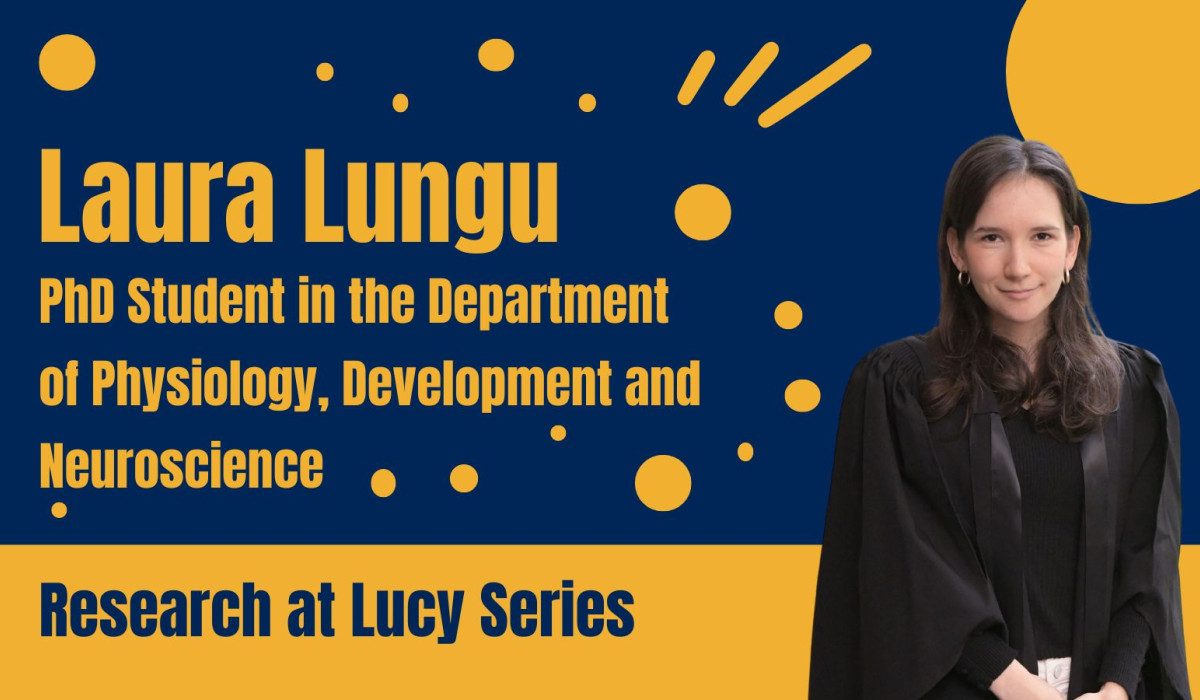This week in the Research at Lucy Series, we speak with Laura who tells us about her work in the fascinating field of connectomics...
Can you tell me a bit about yourself and your background? How did you find yourself in your current field of research?
Absolutely, I love these questions! I’m originally from Romania, from Transylvania. I moved to the UK when I was 18, as research opportunities in life sciences in Romania were quite limited. I really wanted to be a scientist, so I moved to Manchester and started my undergrad in biochemistry. During my studies, I realized I was fascinated with neuroscience. I think it was the realization that understanding psychological phenomena made me feel more in control of myself! That’s what drove me towards neuroscience.
Can you tell me more about your journey into neuroscience?
Sure! Initially, as a biochemistry student, transitioning into neuroscience wasn’t straightforward! I started engaging with professors in psychology and eventually found myself working on synaesthesia—a condition where senses are combined, like associating letters with colours. I have synaesthesia myself, which added a personal touch to my interest! I reached out to professors, attended conferences, and found a mentor who guided me through my final year project, which turned into a research paper!
That sounds like a fascinating journey! Could you tell us more about your current research?
Certainly! My current research focuses on connectomics, which involves mapping neural connections within the nervous system. Imagine taking an orange and slicing it transversely, then reconstructing each piece to create a 3D model. Similarly, in connectomics, we slice through the brain to map neurons and their connections. This allows us to link structural information with functional data, understanding what specific neurons do. Our lab works with fruit flies, which have around 12,000 neurons. Recently, we mapped the entire fly brain, a project that took ten years.
What does a typical day in your lab look like?
A typical day involves a mix of activities: I might spend time using software to analyse 3D neural maps, experiment with coding to figure out anatomically interesting neural circuit patterns, label neurons with various colours to explore their properties - such as whether they contain dopamine or serotonin – and image them with the confocal microscope; or outside of lab work I try to attend as many relevant discussions, seminars, symposiums, or sometime organise one myself! This is to both keep up with developments in the field and spark some connections between fields I haven’t previously considered complementary.
It sounds like you have a very busy schedule! What do you do in your spare time outside research?
I have a lot of side interests, especially in the biotech, entrepreneurship and policy spheres. I’ve been involved in organizing events for Cambridge Gravity and interviewing scientists for their podcast series (Encounters). I also participated in a reading fellowship funded by Entrepreneur First, focusing on scientific revolutions and technological advancements. I’m now passionate about bettering the bidirectional relationship between the Science and the Government. Of course I have hobbies I try to relax with too, such as social dancing or singing/playing music. Balancing these activities with my PhD can be challenging, and it’s an ongoing learning process to structure my time as effectively as possible. It’s all about finding a balance between intense lab work and more flexible periods where I can pursue other interests.
You've transitioned through various fields—biochemistry, psychology, and now neuroscience. Was that challenging?
Absolutely, there’s a lot of friction and entropy when switching field! However, it’s also incredibly rewarding because each transition opens up new perspectives and opportunities. One valuable skill I’ve developed is being able to make progress with minimal information, inferring as much as possible from what I have.
What are your plans after your PhD? Do you see yourself continuing in research or exploring other avenues?
I’d love to continue to pursue a research career, however I’m doubtful academia is the right environment to foster the kind of research I dream to do. At the moment, I’m exploring options closer to scientific policy advising, and worked on a proposal for structures to bring Science and Technology talent in the government, together with former Chief Scientific Adviser Sir Anthony Finkelstein. I’m keeping my options open, considering roles where I can have a broader impact, whether that’s in policy, entrepreneurship, or other areas.
It's inspiring to see your dedication and diverse interests. As a final question, what message would you like to share with students who are uncertain about their future in research or any other field?
Embrace uncertainty and be proactive in trying different things. It’s important to quickly assess whether something is right for you and move on if it’s not. Don’t be afraid to step out of your comfort zone and explore new fields. Each experience will teach you something valuable and help you find your true passion. And remember, it’s okay to still be exploring and figuring things out. The journey is just as important as the destination.
Thank you so much for sharing your story and insights, Laura. It’s been a pleasure talking with you!
Read more of Laura's blogs here!




